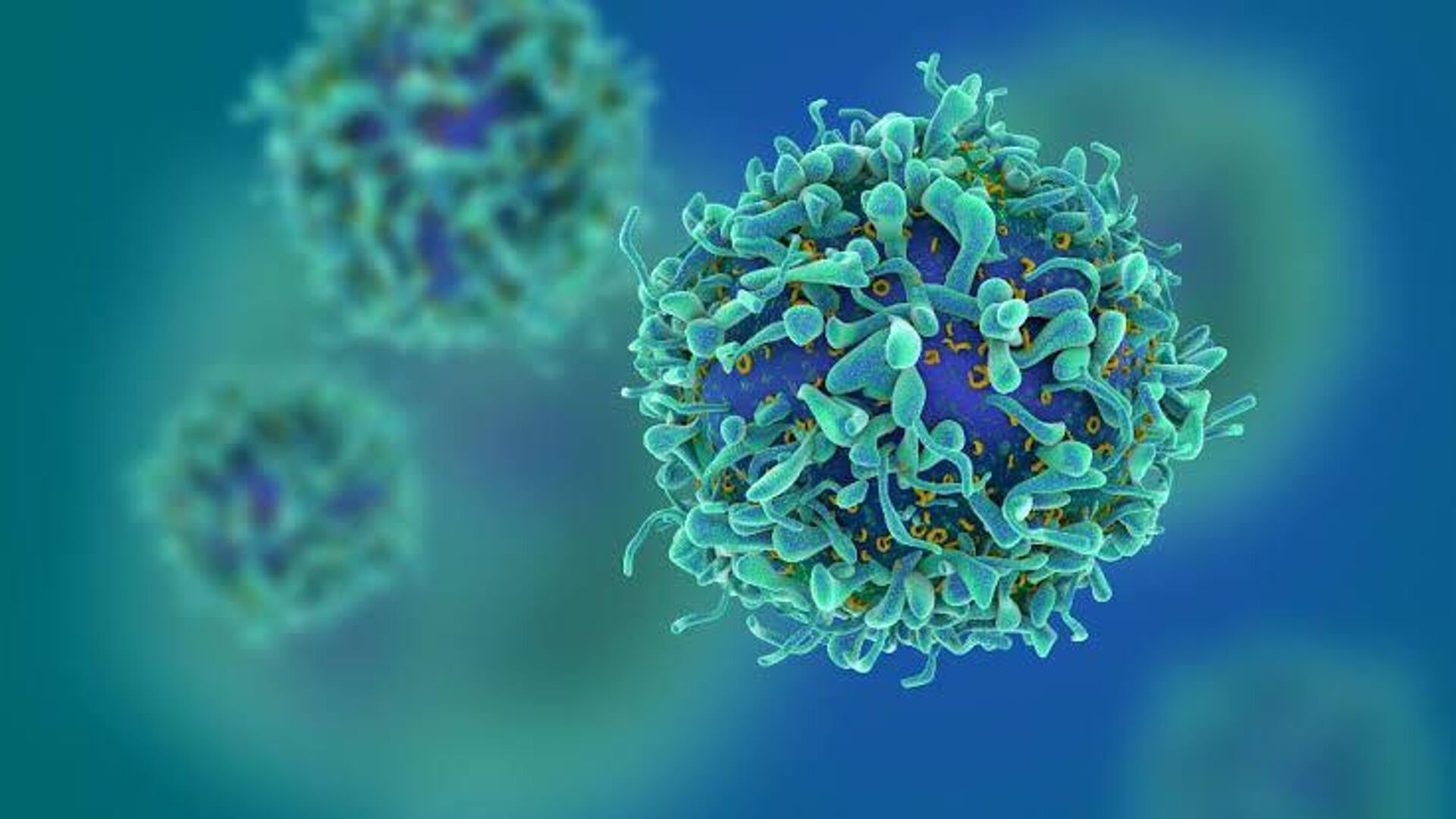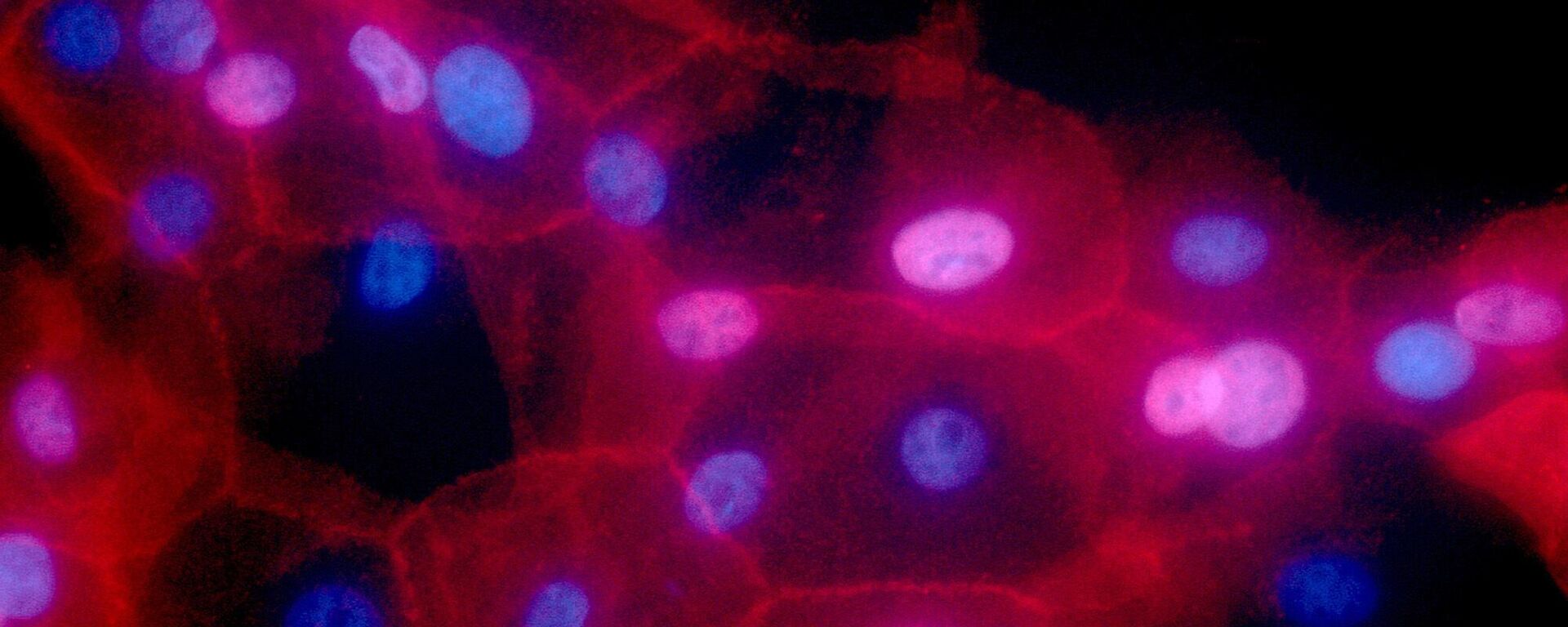https://sputniknews.in/20240228/indian-researchers-develop-inr-100-pill-to-prevent-cancer-recurrence-6690875.html
Indian Researchers Develop INR 100 Pill To Prevent Cancer Recurrence: Media
Indian Researchers Develop INR 100 Pill To Prevent Cancer Recurrence: Media
Sputnik India
Researchers at India's premier cancer treatment facility, Tata Institute in Mumbai, have announced a groundbreaking treatment that can reduce the side effects of radiation and chemotherapy by 50%, and prevent cancer recurrence.
2024-02-28T20:09+0530
2024-02-28T20:09+0530
2024-02-28T20:10+0530
science & tech
india
health
science & tech
mumbai
health crisis
health issues
the world health organization (who)
healthcare system
cancer
https://cdn1.img.sputniknews.in/img/07e8/02/09/6502542_3:0:739:414_1920x0_80_0_0_d9ddcba8cbb702f1ac292648e340f248.jpg
Researchers have developed a promising solution for cancer recurrence: an INR 100 ($1.2) resveratrol+copper (R+Cu) tablet, which targets harmful cell-free chromatin particles (cfChPs) released by dying cancer cells.Dr. Rajendra Badve, a senior cancer surgeon at Tata Memorial Hospital, shared with NDTV that this tablet holds immense potential to enhance cancer treatment, particularly for cancers of the pancreas, lungs, and oral cavity.He explained that when cancer cells die, they break down into tiny fragments called chromatin particles. These particles can travel through the bloodstream, infiltrate healthy cells and trigger carcinogenesis.In a decade-long effort, researchers and doctors at Tata Memorial Hospital developed pro-oxidant tablets that showed promise in erasing chromatin particles, significantly reducing the risk of cancer recurrence.This cost-effective solution has the potential to transform cancer care worldwide, especially in resource-limited countries.While doctors are optimistic about the tablet's effectiveness, human trials have yet to be conducted, highlighting the need for further research and evaluation.
https://sputniknews.in/20240209/indias-indigenous-cancer-treatment-car-t-cell-therapy-cures-its-first-patient-6501400.html
india
mumbai
Sputnik India
feedback.hindi@sputniknews.com
+74956456601
MIA „Rossiya Segodnya“
2024
Sangeeta Yadav
https://cdn1.img.sputniknews.in/img/07e6/0c/0f/110602_0:0:641:640_100x100_80_0_0_c298016a79eb02ef8caa9d1f688c12a5.jpg
Sangeeta Yadav
https://cdn1.img.sputniknews.in/img/07e6/0c/0f/110602_0:0:641:640_100x100_80_0_0_c298016a79eb02ef8caa9d1f688c12a5.jpg
News
en_IN
Sputnik India
feedback.hindi@sputniknews.com
+74956456601
MIA „Rossiya Segodnya“
Sputnik India
feedback.hindi@sputniknews.com
+74956456601
MIA „Rossiya Segodnya“
Sangeeta Yadav
https://cdn1.img.sputniknews.in/img/07e6/0c/0f/110602_0:0:641:640_100x100_80_0_0_c298016a79eb02ef8caa9d1f688c12a5.jpg
researchers, resveratrol+copper (r+cu) tablet, cancer recurrence, cell-free chromatin particles (cfchps), dying cancer cells, cancer treatment, pancreas, lungs, oral cancer, dr. rajendra badve, cancer surgeon, chromatin particles, cancerous, doctors, pro-oxidant tablet, food safety and standards authority of india, fssai,
researchers, resveratrol+copper (r+cu) tablet, cancer recurrence, cell-free chromatin particles (cfchps), dying cancer cells, cancer treatment, pancreas, lungs, oral cancer, dr. rajendra badve, cancer surgeon, chromatin particles, cancerous, doctors, pro-oxidant tablet, food safety and standards authority of india, fssai,
Indian Researchers Develop INR 100 Pill To Prevent Cancer Recurrence: Media
20:09 28.02.2024 (Updated: 20:10 28.02.2024) Researchers at India's premier cancer treatment facility, the Tata Institute in Mumbai, have announced a breakthrough treatment that can reduce the side effects of radiation and chemotherapy by 50% and prevent cancer recurrence.
Researchers have developed a promising solution for cancer recurrence: an INR 100 ($1.2) resveratrol+copper (R+Cu) tablet, which targets harmful cell-free chromatin particles (cfChPs) released by dying cancer cells.
Dr. Rajendra Badve, a senior cancer surgeon at Tata Memorial Hospital, shared with NDTV that this tablet holds immense potential to enhance
cancer treatment, particularly for cancers of the pancreas, lungs, and oral cavity.
He explained that when cancer cells die, they break down into tiny fragments called chromatin particles. These particles can travel through the bloodstream, infiltrate healthy cells and trigger carcinogenesis.
In a decade-long effort, researchers and doctors at Tata Memorial Hospital developed pro-oxidant tablets that showed promise in erasing chromatin particles, significantly reducing the risk of
cancer recurrence.
This cost-effective solution has the potential to transform
cancer care worldwide, especially in resource-limited countries.
While doctors are optimistic about the tablet's effectiveness, human trials have yet to be conducted, highlighting the need for further research and evaluation.



